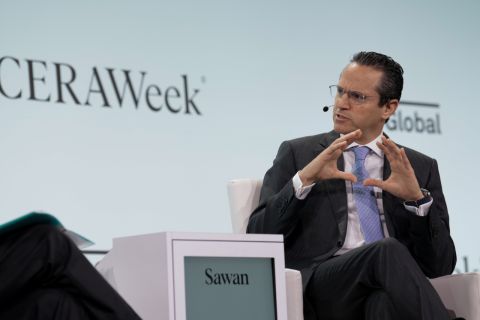Exxon Mobil Corp., under increasing pressure from investors and climate change activists, reported for the first time the emissions that result when customers use its products such as gasoline and jet fuel.
The largest U.S. oil producer said the emissions from its product sales in 2019 were equivalent to 730 million metric tons of CO₂, higher than rival oil majors. The data comes as the company has drawn the ire of an activist investor focused on its climate performance.
The so-called Scope 3 data is included in its latest Energy & Carbon Summary released Jan. 5, though Exxon Mobil downplayed its significance. "Scope 3 emissions do not provide meaningful insight into the Company's emission-reduction performance," the report said. (Report: https://exxonmobil.co/3hL6Tmo)
RELATED:
Oil Major Exxon Mobil Boosts Emissions Reduction Target for 2025
"Even to get to the point of having them disclose this has been like pulling teeth," said Andrew Grant at think tank Carbon Tracker Initiative. "Quite a lot of the rest of the world has moved on from the disclosure to 'What are we going to do about this?'"
Most major oil companies already report Scope 3 emissions and some have reduction targets, including Occidental Petroleum Corp., which in November set a goal to offset the impact of the use of its oil and gas by 2050.
Exxon Mobil said it made the disclosure due to investor interest.
"They’re seeking dollars against companies that are disclosing Scope 3," said Danielle Fugere, president of As You Sow, a non-profit shareholder activist group. "I don't think they have any choice."
By 2025, Exxon Mobil targets reducing the intensity of its oilfield greenhouse gas emissions. It has not set an overall emissions target, though, so emissions could rise if production grows.
Last month, activist firm Engine No. 1 called for expanded spending and pay cuts, a board shake-up and shift to cleaner fuels. Its views are supported by California State Teachers' Retirement System, the Church of England, and echoed in part by hedge fund D.E. Shaw, which has $50 billion under management.
Recommended Reading
US Expected to Supply 30% of LNG Demand by 2030
2024-02-23 - Shell expects the U.S. to meet around 30% of total global LNG demand by 2030, although reliance on four key basins could create midstream constraints, the energy giant revealed in its “Shell LNG Outlook 2024.”
CERAWeek: LNG to Play Critical Role in Shell's Future, CEO Says
2024-03-19 - Sawan said LNG will continue to play a critical role adding that LNG currently makes up around 13% of gas sales but was expected to grow to around 20% in the coming 15 to 20 years.
White House Open to Ending LNG Export Pause in Push for Ukraine Aid, Sources Say
2024-04-02 - Reversing the pause could be tolerable to the White House in order to advance Ukraine aid, in part because the pause has no bearing on near-term LNG exports, the White House sources said.
Mexico Pacific FID Imminent for Saguaro LNG Trains 1 and 2
2024-04-04 - Mexico Pacific Ltd. is close to taking an initial final investment decision for the first two trains at its Saguaro Energía LNG facility in Sonora, Mexico, which will source feed gas from the Permian Basin.
CERAWeek: Trinidad Energy Minister on LNG Restructuring, Venezuelan Gas Supply
2024-03-28 - Stuart Young, Trinidad and Tobago’s Minister of Energy, discussed with Hart Energy at CERAWeek by S&P Global, the restructuring of Atlantic LNG, the geopolitical noise around inking deals with U.S.-sanctioned Venezuela and plans to source gas from Venezuela and Suriname.




